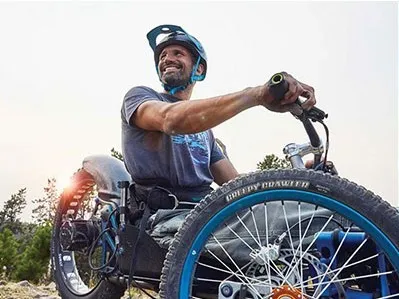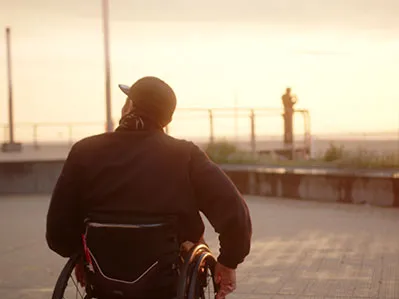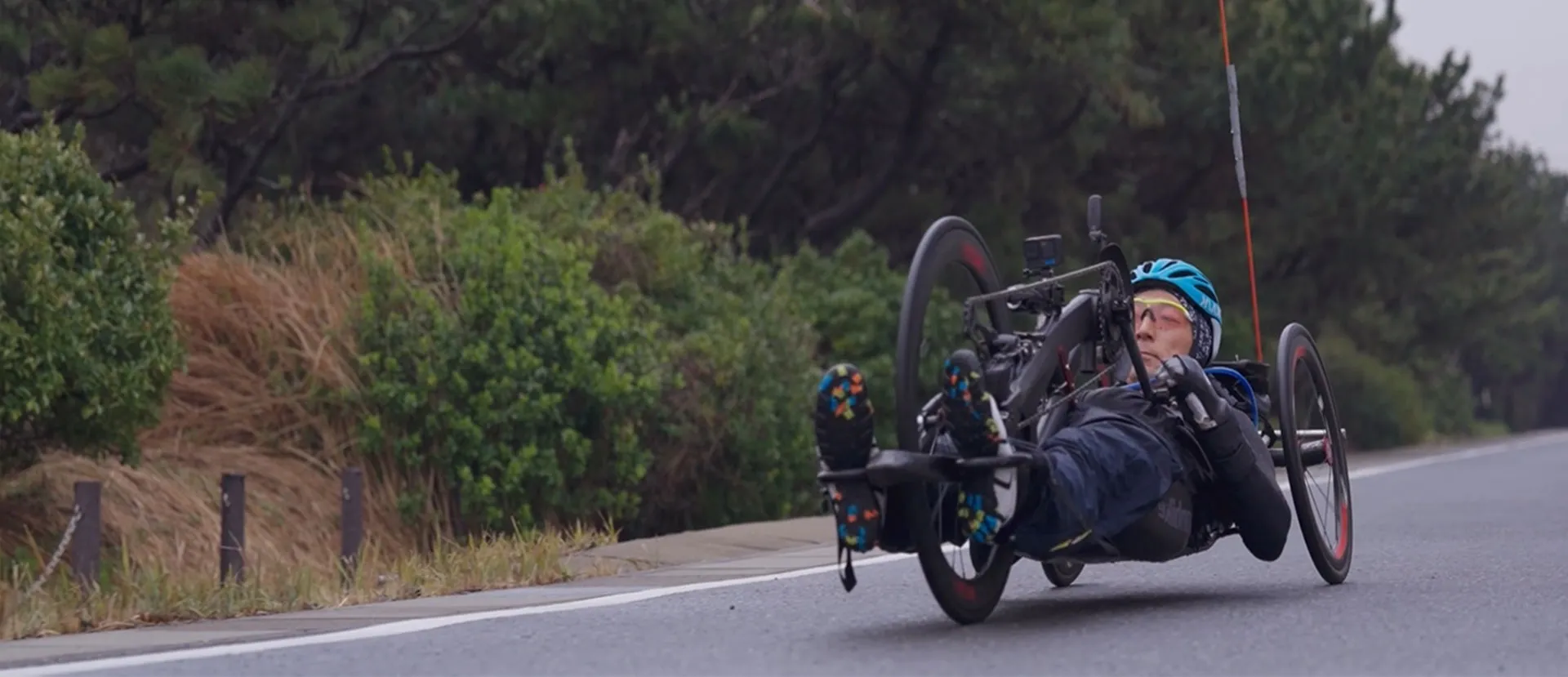Act for Inclusive Mobility
How can we make mobility accessible for all?
Empowering Inclusive Mobility Through Virtual Twin Technology
In the quest for inclusive mobility, Dassault Systèmes enables individuals to push the boundaries of innovation using virtual twin technology. We believe everyone, regardless of their physical abilities or limitations, possess the capability to achieve their goals.
Virtual twins empower innovators to simulate how design and urban planning decisions impact people's ability to move through the world freely. With this knowledge, a more inclusive and accessible world becomes achievable, allowing everyone to reach their full potential.
United for Inclusive Mobility
That is why we invited Kazuhiko Kanno, Dassault Systèmes employee and medal-winning parathlete, to showcase his incredible strength and skills and set a new world record for paracycling. After creating the world record of the farthest distance by handcycle in one hour (male), showcasing the power of determination, Kazuhiko Kanno invited individuals from all walks of life to join and rally behind him for a great ride in the vibrant streets of Paris.
This solidarity rally is meant as a celebration of inclusivity and a testament to the boundless capabilities of the human spirit to push back the limits.
Preparing for a Guinness World RecordsTM
Discover the story of Kazuhiko Kanno, paracycling athlete and Dassault Systèmes employee, as he prepared to beat a world record in Paris to shed light on the challenges of inclusive mobility. An inspiring story of resilience, innovation and community empowerment.
What does inclusive urban mobility mean?
Urban mobility is all of the movements of both people and goods that occur in a city via public or private transportation. The aim is to foster mobility as a universal right, which is essential to access other rights such as housing, work, education and health. Inclusive mobility solutions ensure unrestricted access to jobs and services for all.
Imagine Inclusive Technologies
3D modeling has emerged as a pivotal tool in the quest for inclusive and sustainable technology: designers can create virtual environments that simulate the real world and analyze the impact of various elements on the mobility of people with disabilities. Through the precise visualization and manipulation of digital representations, 3D modeling empowers technologists to craft more accessible, sustainable and accommodating technologies, ultimately fostering a world where individuals with disabilities can navigate and interact with their surroundings with newfound freedom.

Creating More Accessible Cities
Traditional infrastructures may not adequately accommodate diverse needs, limiting accessibility for those with mobility impairments. By leveraging advanced modeling and simulation, virtual twins enable the creation of innovative and adaptive solutions for mobility. Through the incorporation of virtual twins in urban planning, architecture and transportation systems (whether it be personal or collective), society can strive towards a more inclusive future where everyone, regardless of their abilities, can seamlessly and confidently move through the world.

More about Kazuhiko Kanno: A Story of Resilience and Determination
Kanno is a Japanese athlete whose career took an unexpected turn at 22 when a cervical vertebrae injury sustained while surfing led him to explore new sports avenues. Transitioning from baseball to wheelchair rugby in 2006, Kanno swiftly ascended, winning championships with Japan's national team in 2016. In 2020, Kanno retired from wheelchair rugby to pursue paracycling.
Recognized for his talent, Dassault Systèmes welcomed Kanno through the 'Asnavi' program in 2017, facilitating elite athlete career transitions. Beyond sports, Kanno actively collaborates with the Japan National Rehabilitation Center for Persons with Disabilities, enhancing accessibility and advancing wheelchair technology. His dedication and relentless pursuit of challenges inspire others, pushing the boundaries of athletic achievement.
Some Dassault Systèmes Customers Serving the Mobility Sector
FAQ About Urban Mobility Solution & City Mobility
Dassault Systèmes Brands Actively Contributing to Accessible Mobility
SOLIDWORKS for virtual assembly modeling
Offering intuitive tools for rapid idea transformation, SOLIDWORKS enables virtual assembly modeling, providing insights into product functionality and facilitating fabrication, particularly for enhancing mobility solutions.
SIMULIA for efficiency in mobility innovations
Optimizing designs by simulating strength, aerodynamics, and sustainability factors, SIMULIA ensures product reliability before physical prototyping. It plays a crucial role in creating inclusive and accessible innovations, making solutions more reliable and efficient, notably in mobility contexts.



